SENEGAL
History

History
History
Antiquity and kingdoms
Nomads were the first inhabitants of the great river area in West Africa. They lived there for thousands of years before the beginning of our era and lived off hunting, fishing and some primitive agriculture. Many megalithic stone circles from the 7th to the 8th century can be found throughout Senegal. Who these early inhabitants were and where exactly these people came from is still uncertain. It is believed to be away from Egypt and Sudan.
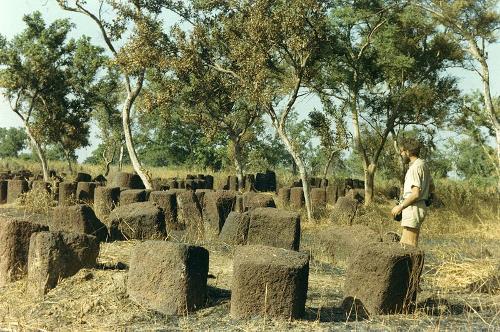 Senegal megalithic monumentPhoto: John Atherton CC 2.0 Generic no changes made
Senegal megalithic monumentPhoto: John Atherton CC 2.0 Generic no changes made
From the beginning of our era, West Africa had several kingdoms. The first flowering period began under the kingdom of Ghana. This kingdom fell apart in the eleventh century due to internal quarrels and conquests of Muslim Berber tribes from Morocco and Algeria. The Ghanaian empire was succeeded by the kingdom of Mali in the thirteenth century. However, the Malinkés or Mandinkas were already expelled in the 14th century and fled to the area of the Gambia River, where they still live. The Malinkés were succeeded by the kingdom of Djolof (Wolof), which soon disintegrated into three smaller kingdoms, Cayor, Baol and Waalo. At the end of the 15th century, the Peul leader Tenguela founded the strict Islamic state of Fouta Toro. Internal conflicts quickly disintegrated this state. In all these kingdoms it was noticeable that the power of the king was limited and the people had a lot to say at the local level.
Portuguese, Dutch, English and French
In the meantime, the time of the great voyages of discovery began and that would have a major influence on the history of Africa, and therefore also for Senegal. In 1444, the Portuguese arrived on the Cap Vert peninsula, where Dakar is now located. An island in the bay was occupied and called "Ilha de Palma". With the arrival of the first Europeans, one of the darkest pages in the history of the African continent also began, the slave trade to America and the West Indies. It is estimated that some 20 million slaves were shipped to the New World. The slave trade was controlled alternately by the French, Dutch and English. The English abolished slavery in 1807, the French in 1848.
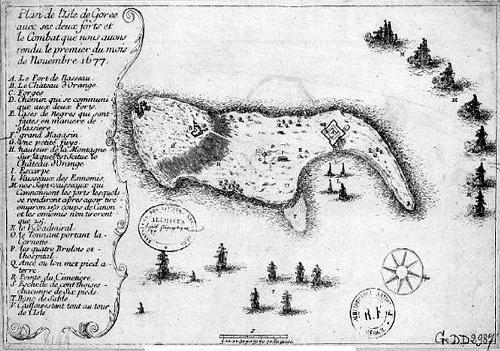 Map of the Ile de Goree 1677Photo: Public domain
Map of the Ile de Goree 1677Photo: Public domain
At the beginning of the 17th century (1617), the Dutch bought the island from a local chief. The Portuguese had long since left it. They called the dock there "Goede Reede", which is actually still the name of the island. However, the name has been corrupted to Gorée over the centuries. The Dutch built two forts (Fort Oranje and Fort Nassau) and several buildings for the storage and transhipment of goods. Dutch trade rule declined considerably after 1650 and fell into the hands of the French and the English. Gorée was conquered by France in 1677.
Until 1814, Gorée and other coastal towns were alternately in French and English hands. In 1814 West Africa came after the Gambia (England) and Guinea-Bissau (Portugal), largely in the hands of France. From 1848, Senegal's four largest cities were considered part of France and were therefore entitled to send envoys to the parliament in Paris. In the interior of Senegal, the Marabout Wars raged between 1850 and 1880. Fanatical Muslims tried to forcibly impose Islam on the animist Wolof, Sérèr, and Malinké population.
Colonization by France
From the mid-nineteenth century, the French took a more thorough approach. They now wanted not only to exploit the West African territory, but to submit it completely to their authority. An exponent of this new approach was the French governor Louis Faidherbe.
A French Christian elite emerged that was opposed by the Muslim population. The 1860 Battle of Medina in Eastern Senegal was won by the French led by Faidherbe. After this, West Africa was further colonized by the French. Dakar was founded in 1857. It was only after France expanded the port of Dakar into a naval support point that Dakar began to grow rapidly.
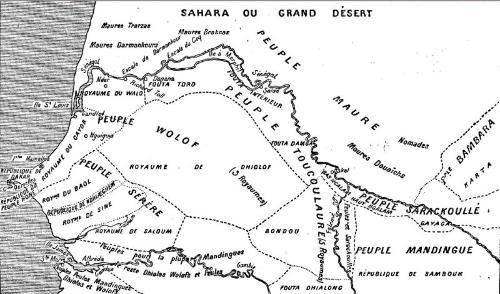 Map of the area around the Senegal River 1853Photo: Public domain
Map of the area around the Senegal River 1853Photo: Public domain
After the Franco-Prussian War of 1870/1871, the French conquered more and more parts of Senegal. The last part of Senegal was captured by the Battle of Kansala in 1868. The definitive boundaries were set at the Berlin Conference in 1884/1885. The French called the area Afrique Occidentale Française - French West Africa.
By 1895, the whole of Senegal was under French control. Dakar became the capital of all of French West Africa in 1902, an area that ran from Mauritania to Niger.
From colony to independent state
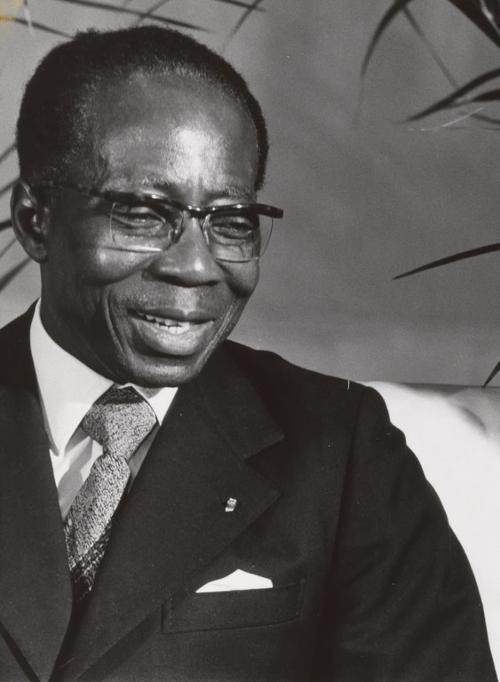 Léopold Sedar Senghor, SenegalPhoto: UNESCO / Dominique Roger CC 3.0 IGO no changes made
Léopold Sedar Senghor, SenegalPhoto: UNESCO / Dominique Roger CC 3.0 IGO no changes made
After World War II, all residents of Senegal were offered full citizenship and the right to vote by France. An Assemblée Territorial was introduced which sent delegates to the French Parliament.
In the late 1950s, French President De Gaulle designed the Commonwealth Construction (Communauté Française), of which the colonies could become autonomous members. Foreign policy and defense remained a matter for the French government. In 1959, the then Catholic leader and poet Léopold Sédar Senghor entered into a federative alliance with Mali. In June 1960 this federation became independent. However, the federation was short-lived and fell apart after a few months. Both countries continued as separate republics and Senghor was elected the first president of the Republic of Senegal. Ultimately, he would hold this position for 20 years. In 1963, Senghor abolished the premiership and made the president the head of state with absolute power. In December 1969, the constitution was amended, re-establishing the position of Prime Minister, and in 1970 Abdou Diouf became the first Prime Minister.
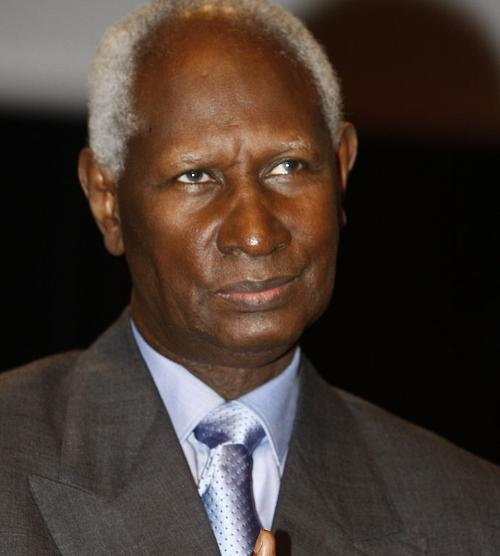 Abdou Diouf SenegalPhoto: Chris Peus CC 2.0 Generic no changes made
Abdou Diouf SenegalPhoto: Chris Peus CC 2.0 Generic no changes made
From 1974 opposition parties were allowed again. In the 1978 elections, Senghor was re-elected and the ruling Parti Socialiste Sénégalais (PSS) emerged victorious from the polls. At the end of December 1980, Senghor unexpectedly announced his resignation. Abdou Diouf succeeded him. In 1982, Senegal and Gambia founded the Senegambia confederation, which, however, was dissolved by Senegal in 1989.
Ultimately, seventeen parties were active in 1985. After the 1983 elections, Diouf was accused of fraud and this led to various bloody confrontations with mainly students in the years that followed. In 1989, under Diouf's leadership, the PSS embarked on a number of reforms, including a new electoral law, the admission of more opposition parties and more freedom of the press. From 1989 to 1992 major problems arose with neighboring Mauritania. After a border dispute in which Senegalese were killed, almost all Mauritanians fled Senegal, afraid of being murdered. In retaliation, Mauritania expelled all Senegalese.
In April 1991, Habib Thiam became Prime Minister, including former opposition leader Abdoulaye Wade and other members of the opposition in his administration.
In Casamance province, the MFDC separatist movement is fighting for Senegal's secession. Ceasefire agreements were agreed in 1991 and 1993, but these were regularly violated by the MFDC.
Violent demonstrations broke out in Dakar in February 1994, organized by a coalition of five opposition parties. The protests were directed against the increased prices caused by the devaluation of the CFA franc by as much as 50 percent! Many people from opposition parties were then arrested. In March 1995, President Abdou Diouf incorporated the main opposition leader, Abdoulaye Wade, into his government, making three of the four main opposition groups part of his government.
Negotiations between the government and the MFDC were complicated in 1995 by internal strife: the military leaders no longer recognized the authority of the secretary general, Diamacoune Senghor. After the rapprochement between the government and the MFDC came to a halt in 1996, fatal incidents were again reported in the Casamance.
21st century
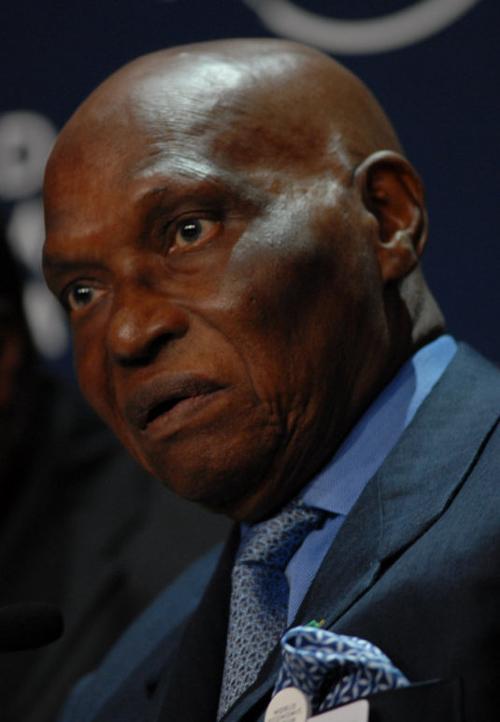 Abdoulaye Wade, SenegalPhoto: World Economic Forum CC 2.0 Generic no changes made
Abdoulaye Wade, SenegalPhoto: World Economic Forum CC 2.0 Generic no changes made
Presidential elections took place in 2000. Diouf made a third run for president. Despite signs that the elections would turn into chaos, they followed a calm course. In the first round, Diouf got only 41% of the vote and a second round had to be involved to get a decision. Abdoulaye Wade won the second round with 58.5% of the vote while Diouf was stuck at 41%. The transfer of power was exemplary, and Senegal euphoric. The April 2001 parliamentary elections helped the Wade-led coalition achieve the desired majority in parliament (89 seats out of 120). This coalition now has a broad mandate to bring about the promised "sopi" (Wolof for change). In February 2007, Wade won the presidential election again, followed by his party's victory in the July 2007 parliamentary elections. In April 2008, parliament changed the constitution, allowing Hissene Habre to try the former leader of Chad. Senegal is supported in this by the African Union. During local elections in March 2009, the opposition won several cities, including Dakar. In April, Prime Minister Cheikh Hajibou Soumare resigns, Karim the president's son is admitted to the new government. In April 2010, Senegal will celebrate its 50th anniversary of its independence.
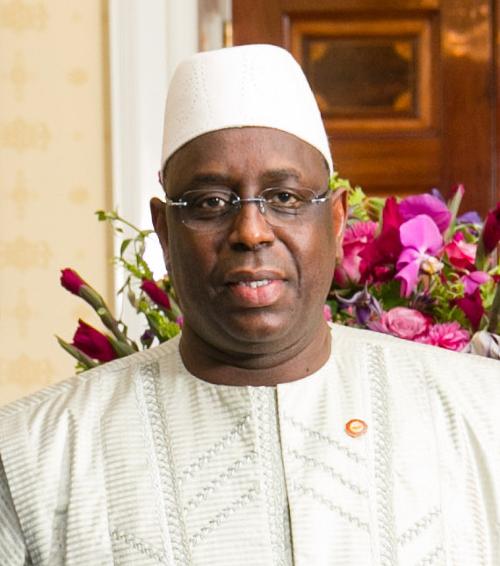 Macky Sall, SenegalPhoto: Public domain
Macky Sall, SenegalPhoto: Public domain
Macky Sall has been President of Senegal since April 2, 2012, and Aminata Toure has been Prime Minister since September 3, 2013. In September 2011, the Prime Minister dismissed the House of Lords for cost savings. According to the opposition, its position is weakened in this way. In July 2013, Senegal arrests the former president of Chad, Hissene Habre, in Dakar. He is on trial on charges of crimes against humanity during his regime. In September 2014, Karim Wade, the ex-president's son, is on trial. He is accused of corruption. In March 2015 he was sentenced to six years in prison. In March 2016, voters determined in a referendum that the term for a presidency will be five instead of seven years from now on. In August 2017, President Sall's coalition achieved a two-thirds majority in parliamentary elections. Sall was re-elected in February 2019, his term expiring in 2024. A month after the election, the National Assembly voted to abolish the office of Prime Minister. Opposition organizations and civil society have criticized the decision for further concentration of power in the executive at the expense of legislative and judicial powers. On 11 December 2021, the National Assembly approved a constitutional amendment re-establishing the position of Prime Minister which SALL eliminated after his re-election in 2019. The new Prime Minister will be appointed in early 2022.
Sources
Derksen, G. / Gambia, Senegal
Gottmer
Dirkx, J. / Reishandboek Senegal
Elmar
Else, D. / The Gambia and Senegal
Lonely Planet
Gambia en Senegal
Cambium
Hesseling, G. / Senegal/Gambia : mensen, politiek, economie, cultuur
Koninklijk Instituut voor de Tropen
CIA - World Factbook
BBC - Country Profiles
Copyright: Team The World of Info